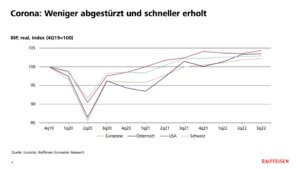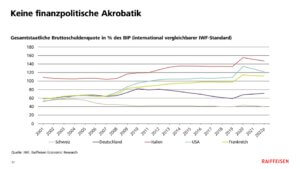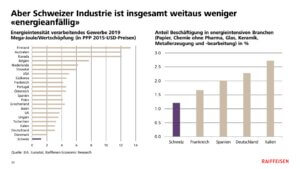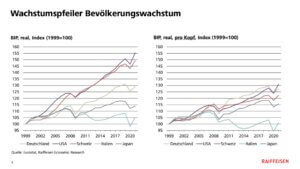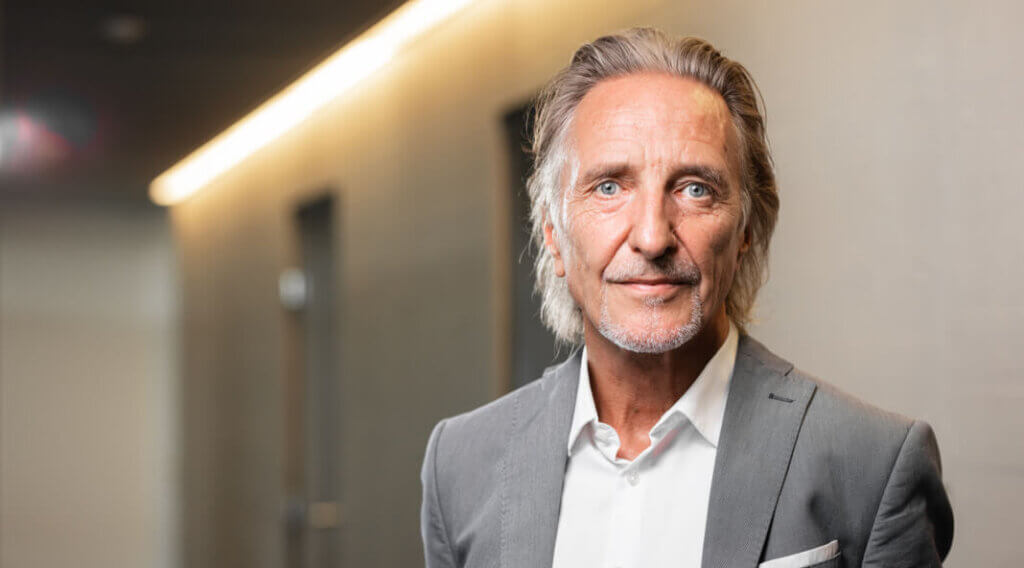
The world is economically out of joint in many places. But one country is mastering its way in exemplary fashion.
Rarely has there been so much praise for a country’s economy. During the coronavirus pandemic, the economy crashed much less in terms of real growth and recovered much more quickly.
There has been a virtual absence of negative aspects, such as high unemployment and mass bankruptcies, both in terms of employment and businesses.
Top of the world
We are talking about Switzerland and Martin Neff, the chief economist of Raiffeisen Switzerland. He almost can’t get out of gushing at the moment. “Absolutely top class,” the usually critical economist told the media this time when talking about Switzerland’s place in global competition.
The country is “top of the world” if you look at the rankings of IMD Lausanne on competitiveness, the UN on innovativeness or the World Economic Forum WEF on global competitive position.
Certainly, the defense of Swiss agriculture slows down the competitive position somewhat. But the position of the small country is an absolute success model.
Less academization
Even in comparison with other countries, such as the U.S.A. or its neighbor Germany, Switzerland does not have to hide.
On the contrary, there is no academic glut in this country that could lead to a shortage of skilled craftsmen, nor are there any fatal strike waves that could slow down the economy.
Even the national debt in relation to GDP has not exploded after the recent financial crisis and after the coronavirus pandemic, as it has in other countries, such as Germany, France, Italy or even the U.S.A.
Energy intensity down
And currently, Switzerland is navigating its way well through the energy crisis as well as inflation, Neff stressed.
In terms of producer prices, the country has even improved its competitive position because the increase in costs for companies has not been as strong as in other regions.
According to the chief economist of the country’s third-largest banking group, Switzerland benefited from the fact that there is already hardly any energy-intensive mass production.
Finland with its paper industry, Australia with its mining industry and Belgium with its steel industry are coming under pressure in the energy crisis.
The share of particularly energy-intensive industries is already very low in Switzerland, Neff told muula.ch.
Moderate wage growth
The strong Swiss franc has also enabled the Swiss economy to cushion the impact of the inflation shock, he added.
In the process, Switzerland was also spared from so-called second-round effects in inflation, i.e. the passing on of inflation from companies to end consumers, with a few exceptions, it was reported.
“The U.S. and the Eurozone compare incredibly poorly against Switzerland on this point,” the star economist stressed. Of course, lower wage growth in this country has also improved Switzerland’s global competitive position, the 63-year-old continued.
Migration as a driving force
Switzerland also enjoys a special attractiveness as a country of immigration. This would automatically alleviate the shortage of labor. However, prosperity would then be shared among several noses, which is why Switzerland would be overtaken in terms of GDP per capita by the U.S.A. and Germany, for example.
In these countries, immigration would slow down – relatively speaking.
Switzerland as special case
Looking to the future, the Raiffeisen chief economist does not expect an exhilarating, but also not worrying, economic development for Switzerland this year. GDP is expected to grow by around 1 percent.
The EU and the U.S.A. on the other hand are likely to have a much tougher time. Neff expects GDP to rise by 0.5 percent in the United States and zero growth in the euro zone.
Switzerland, the chief economist of Raiffeisen Switzerland told muula.ch, is simply “an island of bliss.”
10/11/01/2023/kut./ena.

